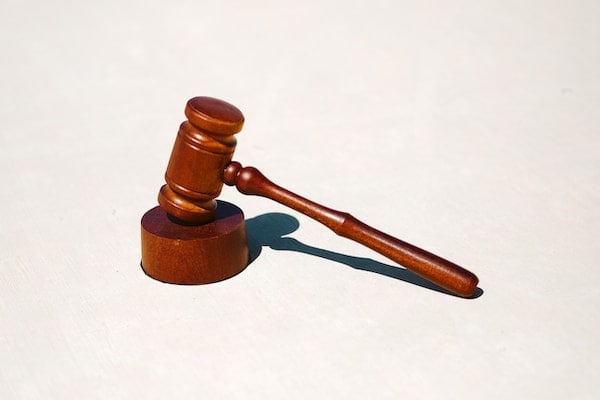Tech News
Things That Whistleblowers Should Be Aware of Before Reporting
If you have information about a fraudulent scheme at your workplace, there are many things you should do. But there are also some things that you should wait to do. The law protects people who report wrongdoing, but very specific rules must be followed to get these protections. A lawyer can help you through this process and will make sure your claims are protected.
Don’t Forget to Talk to an Attorney
When you know that your employer is committing fraud on the government, you must report it. But this is a complicated process, and many things can go wrong. If you make a mistake, it could damage your case or even get you into legal trouble. So before you take action, talk to a whistleblower attorney with experience handling federal and state law. Federal employees, contractors, and grantees implementing projects with US funding are often in the best position to identify waste, fraud, and abuse related to the programs they oversee. In addition, under the False Claims Act and other laws, federal workers are protected from retaliation for reporting such information.
In addition, the SEC’s Whistleblower Program offers monetary awards of 10% and 30% of any financial sanctions collected in enforcement actions that are successful because of a whistleblower tip. These awards are based on the significance of the information and the level of assistance the whistleblower and their lawyer provided to the SEC in its investigation. The most important thing to remember is always to keep the flow of information to the authorities. While you may be tempted to “wait and see” if additional evidence emerges, this can backfire dramatically. It can tip off the suspects and thwart the investigation, so it’s always better to report your concerns immediately.
Know Your Rights
Whether you’re a government employee, private sector worker, contractor, or volunteer, it is important to understand your rights before blowing the whistle. Whistleblowers assume risks and can face retaliation from their employers or organizations. The federal government has several laws to protect whistleblowers. It also encourages people to come forward and report wrongdoing, including fraud, waste and abuse of authority, mismanagement, gross misconduct and a substantial and specific danger to public health or safety. State and local laws are also in place to protect whistleblowers. These include a variety of workplace safety and health, environmental, consumer financial protection, aviation, maritime, motor carrier, nuclear, public transportation agency, railroad, securities, commodities futures, options and swap markets, and tax laws. Whistleblowers are encouraged to report information through their employer’s internal channels or a prescribed person or body. For example, the Equality and Human Rights Commission is a defined body for raising concerns about breaches of equality or human rights law.
In addition to reporting to your employer, whistleblowers may have the right to submit tips to the Securities and Exchange Commission (SEC). The SEC’s award program rewards eligible individuals who provide original and credible information, leading to successful enforcement actions with over $1 million in monetary sanctions. However, whistleblowers must do more than point to publicly available materials and state that the information suggests possible securities law violations.
Document Everything
If you suspect fraud, you should arm yourself with as much evidence as possible before filing your report. Documents, communication logs, and payment slips are important pieces that will help authorities understand what’s happening. For example, if you’re reporting banking fraud involving channel stuffing, it’s helpful to have copies of bank or credit card statements demonstrating unauthorized activity. It’s also a good idea to bring printouts of any other documents you can access, including data breach notification letters, collection notices, IRS notices, or pay stubs.
In addition to accounting and disclosure fraud, whistleblowers can report improper governmental activities. These include bribery, theft of government property, misuse of funding or other assets, misconduct, mismanagement, violations of the law, and other wrongdoing. Remember, you can be rewarded for exposing fraud related to stimulus payments, Medicare claims, Social Security benefits, hacked credit cards, and other fraudulent behavior.
Don’t Give Up
Many laws and programs reward individuals who expose companies committing securities or commodities fraud. Some of these programs also protect whistleblowers from retaliation. In the Securities and Exchange Commission’s (SEC) whistleblower program, for instance, those who submit information regarding potential violations of federal securities laws that result in SEC enforcement actions are rewarded financially. Those who receive rewards have significant knowledge about wrongdoing that has caused or could lead to, financial harm to the United States government, the securities industry, or individual investors.
In addition, the SEC whistleblower program does not require an individual to be employed by the SEC or any other government agency to receive an award. The SEC whistleblower program allows multiple people to act as co-whistleblowers in the same case if they have independent sources of information and are not competing with each other.
Even so, there is a risk that individuals who attempt to report misconduct will ruin their cases by engaging in conduct that undermines the strength of their retaliation claims. For example, it is not a good idea for whistleblowers to send their information directly to the police or other authorities without consulting an attorney. It can potentially tip off the suspects and thwart the entire investigation. It can also damage a whistleblower’s reputation.






